Monthly Journal
February 2024
International Press Review
The most relevant events of the area through international sources
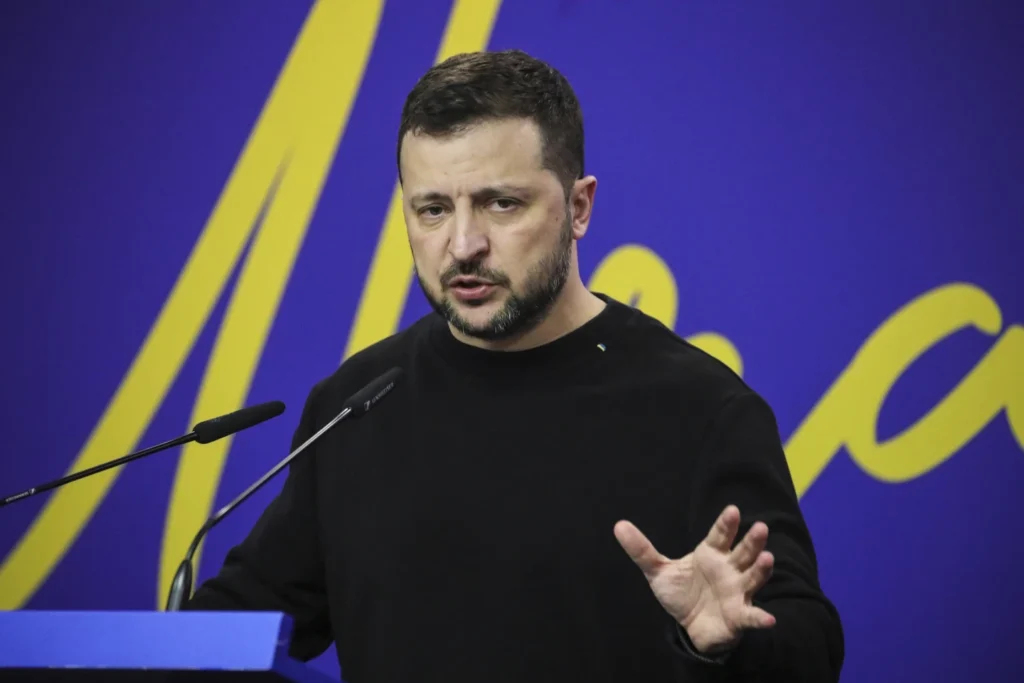
Zelensky in Tirana for discussing support on weapons
AP News
Ukrainian President Volodymyr Zelensky met Balkan leaders in Albania to rally support and weapons for Ukraine amidst Russian offensives. In Tirana, during the ‘Ukraine-Southeast Europe Summit,’ Zelensky discussed defence cooperation and joint arms production with Albania’s Prime Minister Edi Rama and other regional leaders, praising Albania’s support since the 2022 invasion. “We discussed Ukraine’s defence needs and potential joint arms production,” Zelensky confirmed.
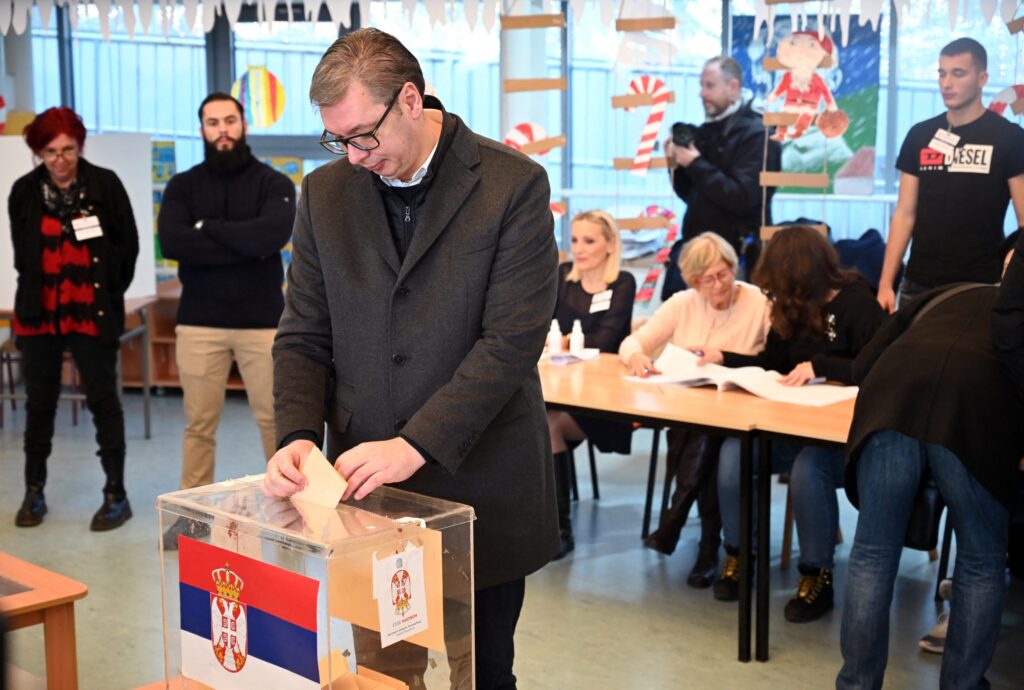
OSCE confirms unfair conditions in Serbian elections
Euractiv
International observers criticized the “unjust” conditions favouring President Vucic’s party in Serbia’s December elections, leading to a controversial win for the SNS party. The OSCE highlighted the elections were well-run but “dominated by the decisive involvement of the President which together with the ruling party’s systemic advantages created unjust conditions”. Allegations of vote buying and ballot stuffing were also noted, in the context of the ruling party’s significant victory over the opposition.
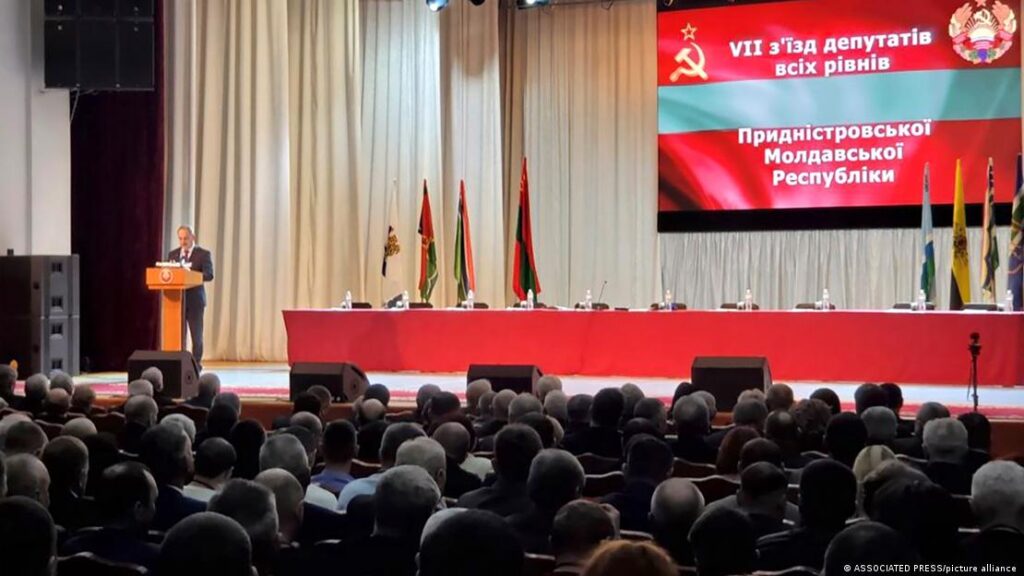
Breakaway Transnistria asks Russia for ‘protection’
RFI
Pro-Russian leaders in Moldova’s separatist Transnistria region have requested Moscow’s “protection” through a Congress of Deputies. This plea came in a resolution adopted at the end of February, seeking political and diplomatic support from Russia’s legislative bodies against alleged rising pressures from Moldova. The move could signalise an attempt of Moscow to further increase its influence in the pro-Russian breakaway Transnistria, with potential serious implications on the European security.
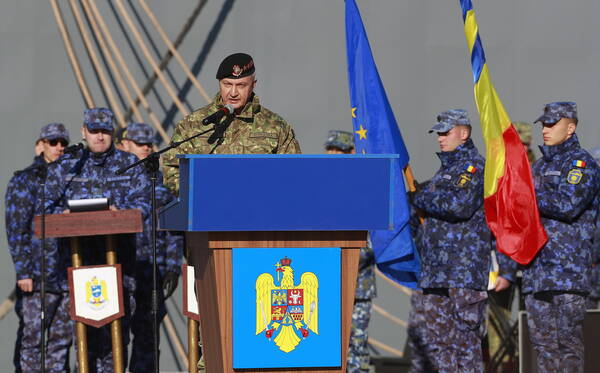
Romania’s top general warns Russia might attack Europe
Politico
Romania’s Defence chief, general Gheorghita Vlad, warned about the lack of preparedness of his country vis-à-vis a potential conflict with Russia. Vlad anticipated an escalation of the ongoing conflict outside of the Ukrainian borders, with Moldova but also the Western Balkans at risk. Vlad proposed voluntary military training up to the age of 35 years to address readiness gaps caused by the end of compulsory military service.
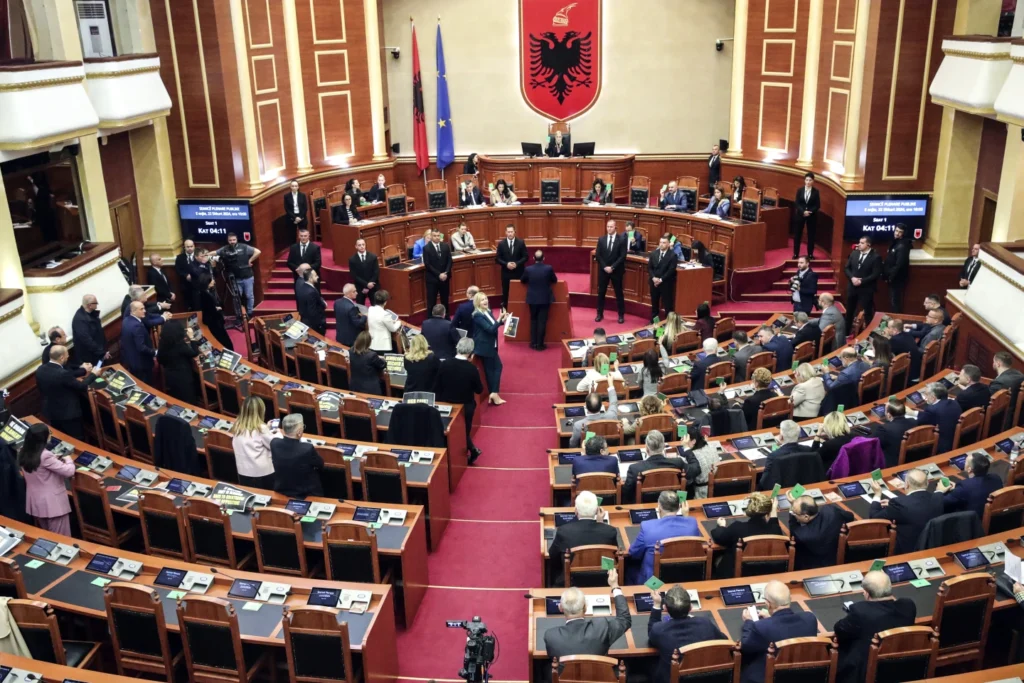
Albania approves controversial migrants’ deal with Italy
AP
Albania’s Parliament approved a deal to host up to 3.000 asylum seekers on behalf of Italy, amid opposition and rights groups’ protests. The five-year agreement, criticised for bringing the asylum seekers outside the EU, could result in up to 36.000 migrants being sheltered in Albania annually. The President of the European Commission, Ursula von der Leyen, praised it as innovative, despite the controversy it raised.
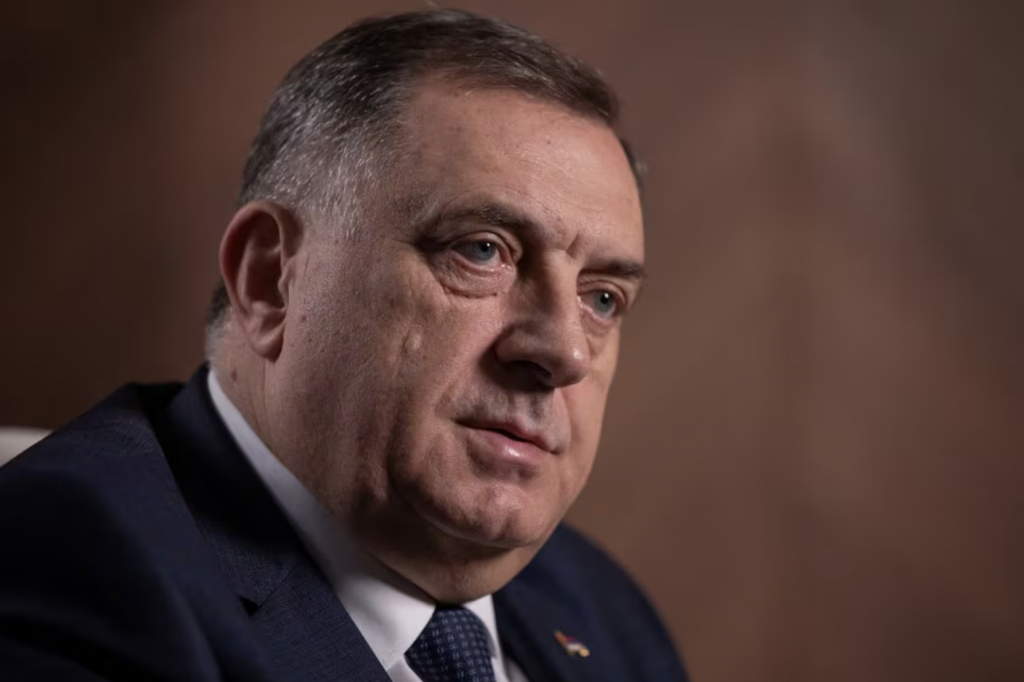
Trial against Bosnian Serb leader Dodik begins
Reuters
The trial of the Bosnian Serb nationalist leader and president of Republika Srpska Milorad Dodik, formally commenced in Bosnia’s state court this month, following a series of delays. Dodik faces serious charges for deliberately flouting the decisions of the international peace envoy to Bosnia, Christian Schmidt, which were brought after Dodik enacted legislation that disregards the decisions of the Constitutional court. Dodik’s supporters demonstrated outside from the tribunal.
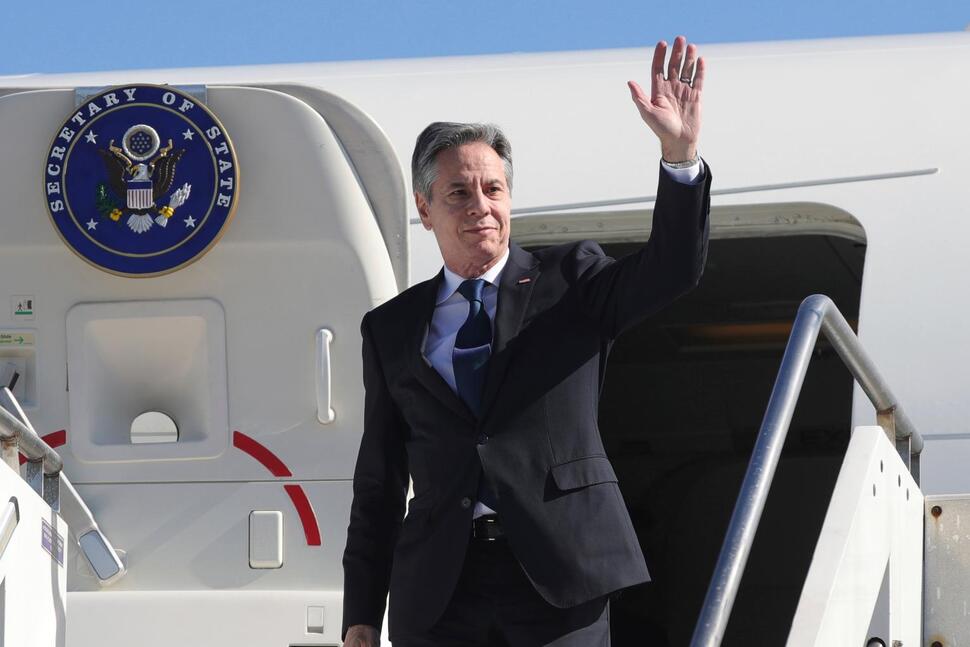
Blinken promises support to the Balkans towards EU integration
ABC News
US Secretary of State Antony Blinken visited Albania to strengthen ties with Tirana and support the Western Balkans’ EU integration. “We can’t have a repeat of what we saw and what too many people experienced in the 1990s, which is why we’re committed to supporting all of the efforts to advance the integration of countries in the Western Balkans with each other and with Europe,” Blinken said. The Secretary of State also announced that the new NATO air base in Kucova will be opened in March.
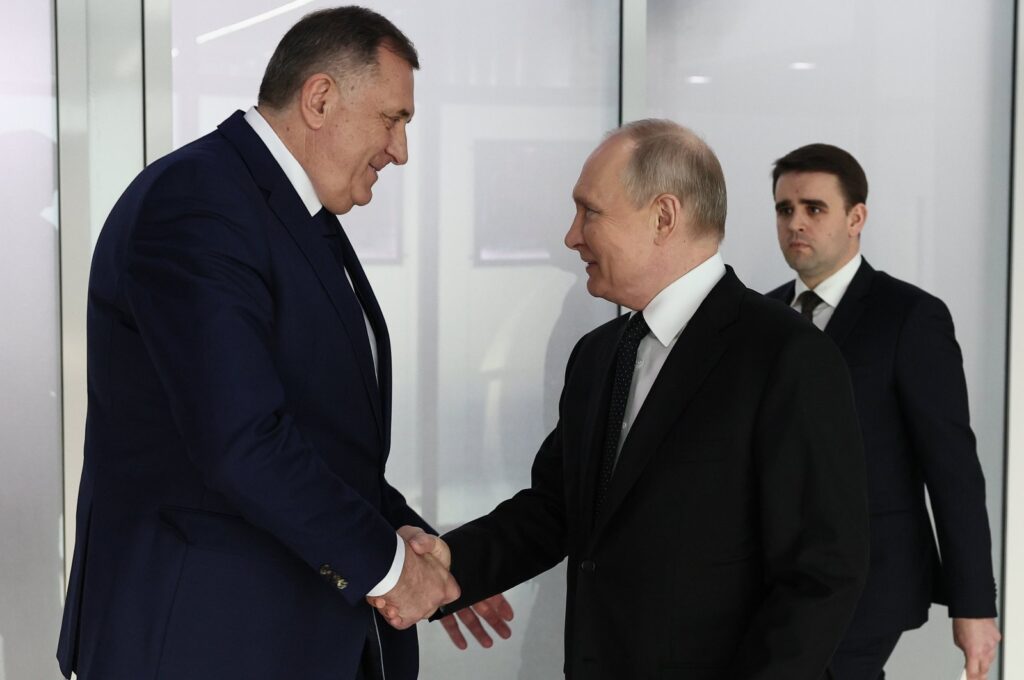
Republika Srpska to increase gas imports from Russia
SeeNews
Republika Srpska plans to boost its gas imports from Russia, as confirmed by its president, Milorad Dodik, after he met Putin in Moscow. A deal with Gazprom ensures gas supplies to Banja Luka until 2025, with payments in roubles. The gas reaches Bosnia through Turkey, Bulgaria, and Serbia. Additionally, Russia intends to invest in constructing two 600 MW gas-fired power plants in the Bosnian Serb entity, a project valued over 1,5 billion euros, according to local media.
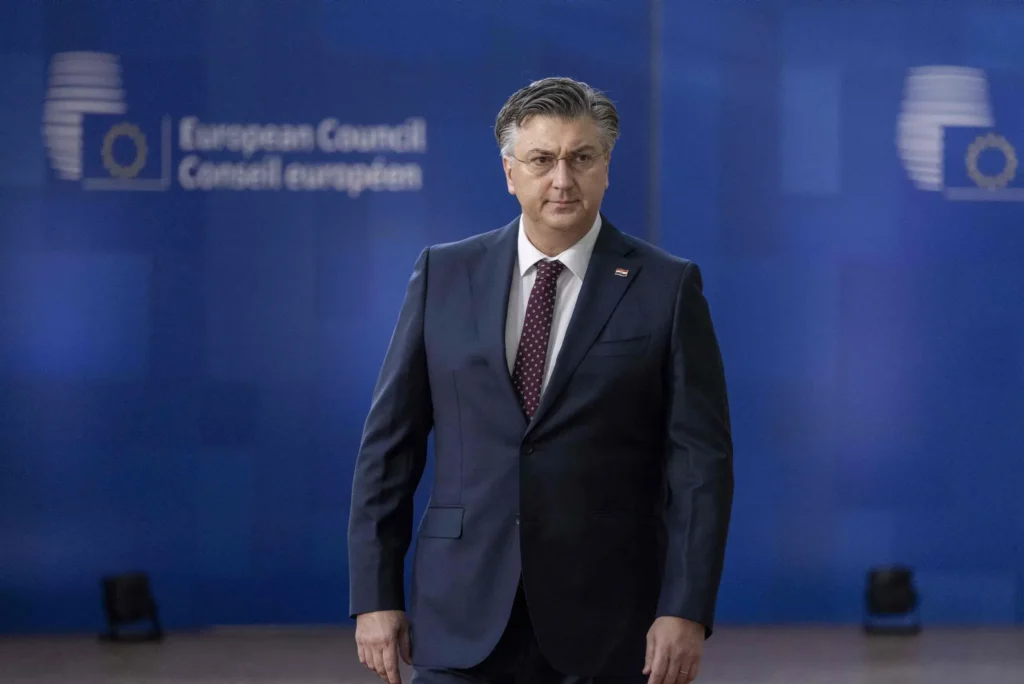
Croatia invests 400 million for new pipelines, first LNG in Greece
SeeNews, Serbia Energy
Croatia plans to build two gas pipelines worth 400 million euros to enhance gas security and support deliveries to neighbouring Hungary and Slovenia. These projects are connected with the expansion of the LNG terminal on Krk Island, which is receiving mostly liquefied gas from the US, with a capacity from 2,9 to 6,1 billion cubic meters. Meanwhile, the important Greek floating gas regasification unit in Alexandroupolis received its first LNG cargo in February, for testing purposes.
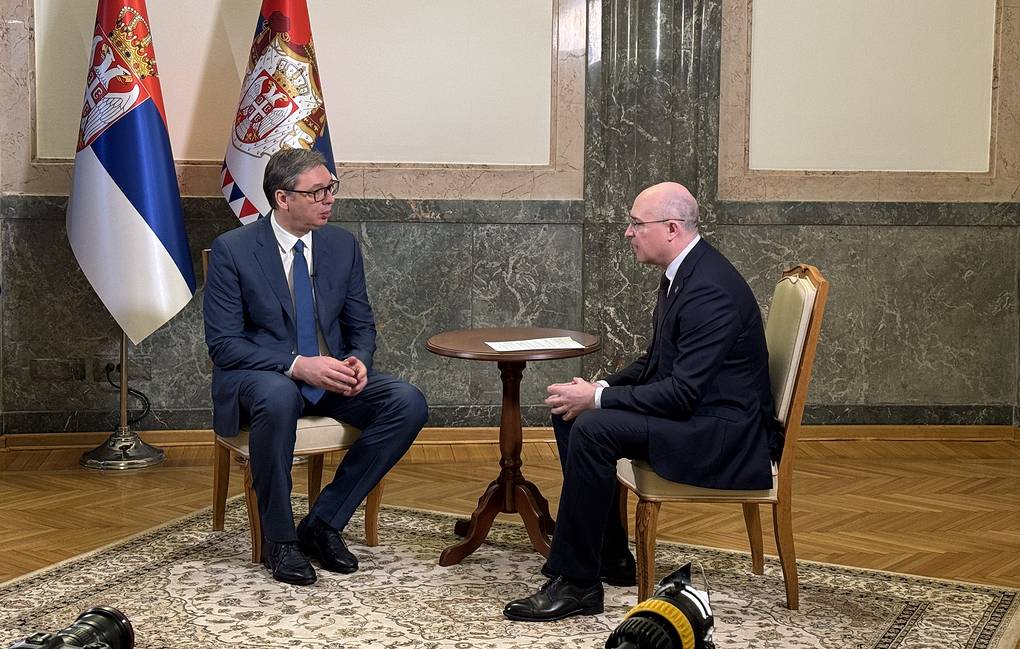
Serbia will continue to reject sanctions against Russia
Tass
Serbian President Aleksandar Vucic plans to preserve Serbia’s stance of not joining anti-Russian sanctions, despite significant Western pressure, he stated in an exclusive interview witthe Russian agency TASS. “We said that it is our position not to impose sanctions [against Russia]. I said it back then, because we know from our own experience what it feels like when sanctions are being imposed against us (…) and it would have been unfair to do so to the Russian people,” Vucic said.
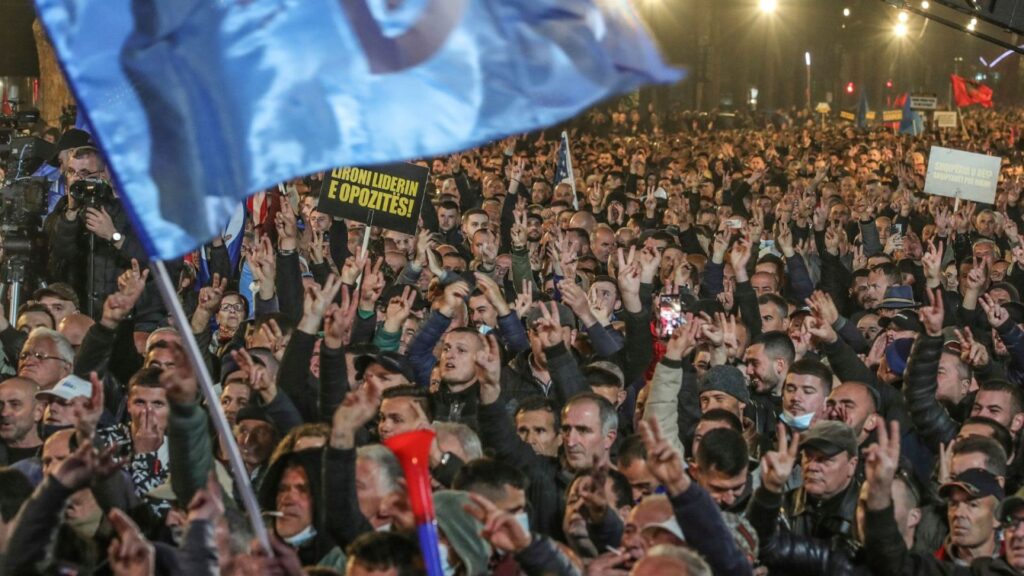
Opposition in Albania stages new massive protests
Associated Press
In Tirana, thousands of opposition supporters protested against alleged government corruption, clashing with police by throwing stones and flares. They demanded investigations into alleged corruption by Prime Minister Edi Rama and his circles. The protest was supported by former PM and opposition leader Sali Berisha, now under house arrest for alleged abuse of power. Parliament sessions in Albania were also disrupted by opposition lawmakers since October.
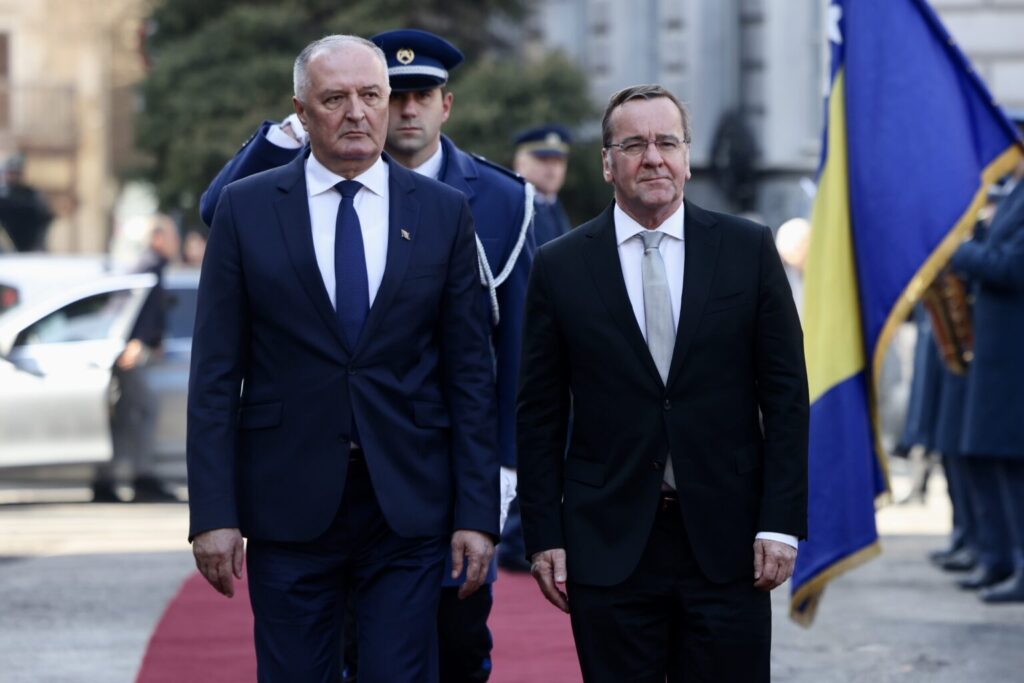
Germany to prevent Russian attempts of destabilizing the Balkans
N1
During a visit to Sarajevo, German Defence Minister Boris Pistorius emphasized Germany’s commitment to the stability of Bosnia and Herzegovina and the Western Balkans, highlighting Berlin’s long-term support for the region. “We want to prevent Russia from causing an additional crisis, destabilization, from abusing this region to expand its influence, hoping to destabilize the West in this way. Germany will support the engagement of EUFOR Althea. It is very important that the forces can remain in Bosnia and Herzegovina,” said Pistorius.
The Insight Angle

Albana Shehaj
A political scientist with a long expertise in international political economy, artificial intelligence, and democratic development. She has extensive experience in areas such as accountability, economic reform, digitalization, migration, and democratization, particularly in Eastern Europe and the Western Balkans. Currently engaged in research at the Minda de Gunzburg Center for European Studies at Harvard University, she also serves as a policy analyst, providing advice on foreign policy initiatives to policymakers and the United States Department of State. Prior to her current position, she cooperated with the United States National Security Commission on Artificial Intelligence (NSCAI).
The Balkan region, including EU members like Croatia, Romania, and Bulgaria, has been grappling with a significant demographic challenge for decades, marked by low birth rates and a notable trend of emigration. What are the primary factors contributing to this phenomenon, and which countries are and will be more severely impacted?
A combination of socioeconomic and political factors contributes to the demographic challenges, marked by low birth rates and higher emigration, that face Western Balkans (WB) countries.
On the economic spectrum, the region’s economies are still in the transitioning and developing stages, with lower living standards compared to their Western European counterparts. These conditions make Balkan countries vulnerable to brain drain and outward migration as working-age populations seek employment opportunities and higher wages abroad. The emigrants in return contribute to their native countries’ economies through remittances, which comprise a significant portion of the region’s economies. In year 2021, WB countries received over $20 billion in remittances from migrants and diaspora members living abroad.
Along socio-cultural lines, reduced fertility rates across Europe and the Balkans, largely due to shifting attitudes toward marriage, childrearing, and gender roles have also posed demographic challenges across the region. Total fertility rates (children per woman) in 2020 were 1,5 in Croatia, 1,8 in Romania and 1,6 in Bulgaria, all below the replacement rate of 2.,1. The high costs of childcare and raising children coupled with a lack of social support have discouraged larger family sizes across a number of countries in the region.
Politically, countries like Croatia, Romania, and Bulgaria that have been EU members since 2013 and 2007, respectively, have been able to offer their citizens freedom of mobility within the bloc for longer periods of time, making emigration easier. Other landlocked nations like Serbia and Bosnia and Herzegovina have fewer natural barriers to outward migration. Eurostat data project that these countries will see the largest working-age population declines between the years 2022-2050 at -21,4% and -27,7%, further endangering their labour forces and economic prospects. Their economies remain weaker, making them more reliant on remittances from citizens working abroad – a dependency that inhibits domestic growth and development.
Every month, thousands of persons of all ages, but particularly young, are leaving the region to seek opportunities in wealthier EU countries, notably Germany. What factors make these EU countries attractive, and do the Balkan nations have the capability to address and counteract these pull factors?
The proportions of youth leaving the WB region towards Western Europe, and particularly Germany, are significant. Approximately 15-20% of students, aged 20 to 29 years, have emigrated from Albania, Bosnia and Herzegovina, North Macedonia and Serbia since 2010. Giving a context, the total net migration out of Bosnia and Herzegovina between 2010 and 2020 was more than 10% of its current population. If these trends continue, the populations of Bosnia and Herzegovina and Serbia risk declining by over 25% by year 2050, accounting for high emigration and low birth rates.
Economic factors constitute key pull factors that make wealthier EU nations attractive destinations for WB emigrants. Contrary to Balkan countries, Germany and other Western European states have higher GDP per capita and offer significantly higher wages to potential immigrants. Moreover, Germany’s secure and growing labour markets offer employment and career opportunities for WB youth that are not readily available in the region. The strong pull of higher wages and better employment opportunities abroad are particularly appealing for the region’s youth who face a labour market characterized by unemployment rates 2-3 times higher than the EU average. As a consequence, while youth unemployment rates across WB countries exceed 20%, the number of employed Balkan residents under 30 in Germany grew over 150% between 2010 and 2020, with Albanian, Bosnian, and Serbian youth comprising significant shares.
Social factors also play a key role in pulling emigrants into the EU countries. When compared to WB countries, Western European states offer social welfare systems and public services, including healthcare, childcare, education, and eldercare that provide immediate financial and socioeconomic relief to new immigrants.
In the short-to-medium term, the WB countries face critical challenges in their efforts to curb the impact of migration pull factors. Given that the WB countries began at a much lower development baseline point compared to their Western counterparts, standards of living and wages across the regions will take generations to converge, despite economic reforms across the region. Social welfare systems also require critical long-term investments. The loss of human capital and the “brain drain” of skilled, educated youth poses serious long-term challenges if not tackled with urgency.
What is to be noted, however, is that a few WB countries are seeing success improving education and job training to increase competitiveness abroad or priming a virtual circular migration process. From a capabilities perspective, targeted measures to improve vocational training, develop targeted industry clusters and strengthen professional networks may help provide alternatives to emigration over time. Focussed reforms to targeted industries will also help offset pull factors over the long run, if sustained. Overall, the capacity to counteract pull factors in a generation or less appears limited, not accounting for unexpected economic transformation.
Is the EU indirectly benefiting from the demographic decline in the Balkans, by attracting workers and young people to address its own labour market challenges?
Evidence suggests that the EU is indirectly benefiting from the Balkan countries’ demographic shifts. It does so by attracting young workers to address its own labour market shortages. Data show that since year 2000, the WB countries of Albania, Bosnia and Herzegovina, Kosovo, and Serbia have lost as much as 1-2% of their populations per year due to low birth rates and emigration. At the same time, the EU countries faces the challenge of aging societies and labour force losses. This demographic mismatch has formed migration opportunities that benefit both the EU and the Balkan countries.
From a political perspective, the benefits are not minor for incumbents in migrant-sending countries. While hundreds of thousands of WB citizens, predominantly young and well-educated, who live and work in Western Europe, send remittances back home, political incentives to curb emigration, decline, as emigration eases unemployment and political opposition at home.
At the same time, the EU has faced pressures to address its labour needs and has in recent years opened up its labour markets further to citizens from Balkan countries that are potential future members. In 2014, the European Commission adopted a proposal to allow citizens from Albania, Bosnia and Herzegovina, Kosovo, Montenegro, Serbia, and Turkey to work in EU member states without needing a visa or work permit. This proposal was a proactive measure to curb anticipated labour shortages in the EU and allow workers from the surrounding region access to the EU’s labour markets. These types of policies enable the EU to indirectly tap into the Balkans’ thinning workforce while delaying full integration of the region for political and economic reasons.
In short, the demographic decline facing the Balkans and the labour market needs facing the aging EU have created a mutually beneficial migration-context where both regions’ challenges are partially offset through migration, even as the full political integration of WB countries into the EU remains distant. The open labour markets help the EU tackle its shortages while remittances sent back to Balkan states boost domestic economies and political payoffs.
What are the primary negative consequences of emigration for the region in both the present and the long term? And what risks does the demographic decline pose to the economic and political stability of the Balkans?
Higher emigration rates have both immediate and long-term negative consequences for Balkan countries. In the short term, significant population losses caused by emigration are straining these countries’ welfare systems and economies. While remittances do provide immediate economic relief by bolstering household incomes and Balkan states’ GDPs, overreliance on them places these countries’ economies at risk of exogenous shocks if remittance flows decline.
In the long-term, the demographic decline poses serious risks to the economic and political stability of Balkan countries. Populations in the region are expected to shrink by up to 50% by 2100, if current trends continue. This will exacerbate the impacts of aging societies as the workforce decreases dramatically and support ratios plummet. Such declines threaten to undermine economic growth and development in the Balkans for decades to come.
Politically, population losses reduce the tax bases of these countries and weaken their geopolitical and geoeconomic influence on the global stage. Studies show that democratic instability could be exploited by external actors if governments lack the capacity to provide economic opportunity or basic services for their citizens and domestic electorates.
Thus, while emigration currently fuels Balkan economies, the long-term demographic decline poses severe risks to the region’s stability through slowed growth, aging populations, and potential political fragility. In the absence of policy measures intended to curb losses and boost birth rates and return migration, these costs may simply be too high for Balkan countries to bear.
Despite the challenges, there are also some benefits, particularly in the form of remittances, which are often higher than foreign direct investments. Do these positive aspects balance out the negatives associated with the problem?
With nearly 2,2 million people (roughly 10% of the region’s combined population), who have emigrated from the Balkans since the 1990s and another 1 million youth projected to leave the region over the next decade, the Balkan states face critical democratic and economic challenges in the long-term. These high emigration outflows pose significant brain-drain risks across the region. However, remittance inflows into the WBs have thus far provided offsetting economic benefits. In 2021, remittances to the Western Balkans reached over €15 billion, far exceeding foreign direct investment inflows, providing substantial economic relief for recipient countries. In countries like Albania and Kosovo, remittances make up over 10% of their GDP.
Despite the short-term economic relief, brain drain’s long-term consequences pose critical challenges for the region. As the Serbian President Vucic recognized in a 2021 speech, while remittances help families, Serbia is still losing its most educated and skilled citizens. These outflows of human capital provoke negative demographic shifts and result in skilled-labour shortages, that place the region at the verge of an impending demographic and economic crisis. These risks are higher in countries like Bosnia and Herzegovina, Montenegro, and North Macedonia, where emigration rates are higher.
Thus, while remittances have provided a high degree of economic relief for WB countries over the last three decades, the negative impacts of human capital flight through brain drain still outweigh these benefits for the region’s economies and their long-term development prospects. To balance these consequential scales, WB governments must implement policy measures that attract emigrants back and create jobs and opportunities that incentivize skilled workers to pursue employment opportunities at home.
In conclusion, what policies would you recommend for governments in the region to address and potentially resolve this issue?
Improve economic opportunities and job prospects within the region to incentivize skilled workers to stay or return. This requires targeted investment in sectors like technology, renewable energy, and infrastructure to spur job creation. Kosovo’s Youth Employment Project is one example to this end.
Narrowing income inequality is critical. Increase wages, especially for highly educated professionals like doctors and engineers, to make salaries more competitive with those provided by Western European states. Albania for instance, increased salaries for doctors and nurses by 15% in 2021 to make healthcare wages more competitive with Western Europe.
Invest heavily in education and training programs to develop human capital and empower the workforce. This will make domestic economies less reliant on importing skilled labour. Offer tax incentives and startup grants for new businesses, especially those founded by returning emigrants. Streamline processes for certifying and recognizing foreign credentials and experiences so skilled emigrants have clear pathways to employment opportunities. Negotiate bilateral agreements with high-emigration countries for temporary work programs that allow circular migration patterns. Provide targeted social services, especially childcare in remote areas to disincentivize urban migration within countries to capital cities. Montenegro’s Centers of Excellence program, for instance, offers subsidized childcare in rural areas to disincentivize urban migration. And launch public campaigns promoting the benefits of staying in or returning to the Balkan countries for family purposes and quality of life.
The Key Story
Strategic trends
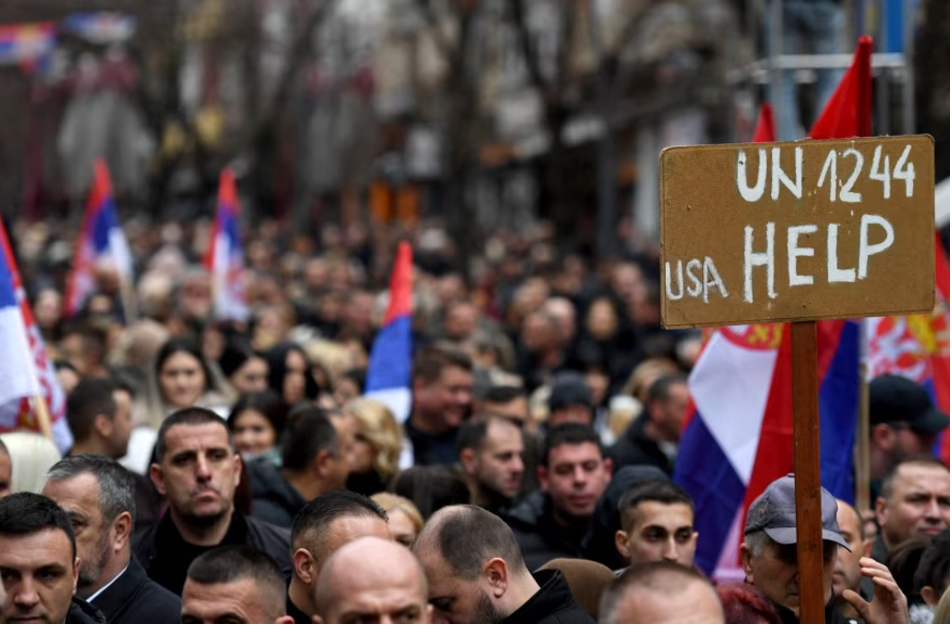
Dinar ban in Kosovo leads to a new serious crisis
between Belgrade and Pristina
Some of the international community’s concerns have materialized as Kosovo’s authorities decided to mandate the use of the euro as the sole currency in the entire former Serbian province. The move, announced in January, has triggered a fresh crisis between Belgrade and Pristina in February. While still not as explosive as previous disagreements, there exists the potential for a significant escalation, in particular in the north of Kosovo, mostly inhabited by Serbs, increasingly concerned about their future.
Despite not being a formal member of the eurozone or the European Union and being de facto under UN administration since 1999, Kosovo adopted the euro as its currency in 2002. However, the approximately 100-120.000-strong Serb community in Kosovo continues to use the dinar. This is because many members of the Serbian minority in Kosovo work for Serbian institutions, where their salaries, pensions, and other financial transactions are based on the dinar, but also because the dinar remains a ‘symbol’ of the links with Serbia and of the refusal to recognize Kosovo’s independence.
Framed as a strategy to combat corruption, money laundering, and the circulation of counterfeit money – yet more a significant step towards full sovereignty – Kosovo has decided to exclusively recognize the euro as its official currency for all commercial and financial transactions beginning this year. According to a regulation issued by the Central Bank of Kosovo in January, from February 1 onwards, “the euro will be the only currency allowed for use within the Republic of Kosovo.” Kosovo’s Prime Minister, Albin Kurti, clarified that “we are not prohibiting the possession of Serbian dinars” but the euro “will be the sole accepted means of payment.” He emphasized that the Serbian community in Kosovo would not face penalties for possessing the dinars. Moreover, a transition period has been established to ensure the Serbian population in Kosovo is well informed about the change and to address any technical challenges arising from the transition from the dinar to the euro.
Nonetheless, Serbia has responded strongly to the prohibition of the dinar. The National Bank of Serbia asked for the “immediately repeal of the discriminatory, illegal and outrageous measures.” Further, Serbian President Vucic remarked, “Serbia considers the removal of the dinar in Kosovo as completely unlawful.”
The crisis escalated further, with Serbia and Kosovo clashing over Kosovo’s ban of the Serbian dinar even at the UN Security Council. Serbia’s President Vucic argued the ban aims to expel Serbs by making their living conditions unbearable. In contrast, Kosovo’s PM Kurti denied claims of ethnic cleansing, stating the ban would block illegal cash flows to criminal groups. The international community, including the EU and the US, cautioned however that this action might worsen tensions in the volatile region, urging for dialogue and a significant postponement of the ban, which was not implemented by Pristina.
Meanwhile, the practical implications of the decision on the currency became evident in northern Kosovo by mid-February, with numerous Serbs facing serious difficulties in receiving salaries, pensions and subsidies paid in dinars. This issue arose because the few Serbian banks and Serbia post offices that remained operational in the north of Kosovo were no longer able of processing all transactions in the Serbian currency, as deliveries of dinars from Serbia were stopped or severely disturbed through the intervention of the Kosovo police and customs.
Hundreds of ethnic Serbs demonstrated in northern Kosovo on Monday against a new regulation targeting the Serbian dinar currency. They waved Serbian flags and held placards denouncing the new rule that makes the euro the only currency allowed in commercial transactions. The protest remains peaceful but the tension in the north is constantly rising.
The ongoing “dinar crisis” carries the risk of escalating into one of the gravest tensions between Serbia and Kosovo capable of rekindling violent conflicts in northern Kosovo. This comes especially after the turbulent events of 2023, a year marked by an armed confrontation between Serb gunmen and police in Banjska. Moreover, it threatens to trigger a significant social crisis in areas inhabited by Serbs, which have depended on Belgrade not only for political support but also for their economic sustenance. An attempt from the EU to negotiate a deal on the issue between Serbia and Kosovo failed at the end of February.
Further News and Views
Corruption continues to hinder the development of democracy in the Balkans
Sources: Balkan Insight, Euronews, Emerging Europe, Transparency International
Corruption continues to pose a significant and persistent challenge in the Western Balkans, leading to serious issues within the region, in particular related to systemic governance deficits, rule of law deficiencies, amid a lack of independent oversight. The Corruption Perceptions Index (CPI) for 2023, released by Transparency International, confirmed that countries in the Balkans are contending with issues such as a malfunctioning rule of law, increasing authoritarianism, and widespread corruption. However, some small improvements were recorded in few countries in the region.
The Index by Transparency International assigns scores from 0 to 100, indicating the level of corruption in each country. In the Balkans, according to the Index, public perceptions of anti-corruption efforts have stagnated, except in Bosnia and Herzegovina, which has witnessed a significant decline over the past decade, ranking now 108th globally with a score of 35. Serbia maintained a score of 36 but dropped to 104th place due to political interference in oversight body appointments, amidst election controversies. Albania, ranked 98th with a score of 37, improved its anti-corruption efforts. Kosovo is in 83rd place with 41 points, showing some progress in legislation and institutional strengthening. North Macedonia improved both its score and rank, securing 42 points and the 76th place in 2023. Montenegro leads with a score of 46 in 63rd place, despite lingering consequences of past state capture under the former Djukanovic’s rule.
Russia using unconventional warfare tactics also in the Balkans
Sources: Bne Intellinews, RUSI
After two years of the Ukraine war, Russia is concentrating on the priming of crises in Europe and carrying out expeditionary operations in Africa for resources control. A report from the Royal United Services Institute (RUSI) emphasizes as well that the Balkan region remains also a key area for Russia’s unconventional military activities.
The report highlights Russia’s interest in information warfare and active measures to manipulate public sentiment, citing instances like the 2016 coup attempt in Montenegro, but also the destabilization attempts organised in Moldova in the past years, with the participation of Serbian nationalist groups. Furthermore, the Akhmat Kadyrov Foundation is notably active in the Balkans, establishing ties with Muslim figures in countries such as Albania, Bosnia-Herzegovina, Kosovo, Croatia, Greece, Montenegro, North Macedonia, Romania, and Serbia, and presenting a serious set of opportunities for Russia’s destabilizing and propaganda efforts beyond Ukraine.
“As the war in Ukraine protracts, Russia has an interest in creating crises further afield” and the Balkans “present a particular serious set of opportunities for such enterprises,” the report warns.
EU - NATO
Romanian President rumoured to be interested in NATO’s top job
Sources: Politico, Radio Free Europe, Eurotopics, Euractiv
Romania’s President Klaus Iohannis is considering challenging Mark Rutte for the NATO’s top job of Secretary General, according to reports by major media outlets such as Politico and Bloomberg. The term of the current NATO’s Secretary General Stoltenberg’s expires in October. However, major NATO powers, including the United States, the United Kingdom, Germany, and France, but also Albania, have already expressed support for the Dutch Prime Minister Mark Rutte. Several undecided countries, including Eastern European nations aligned with Romania, in particular Bulgaria, face challenges opposing Biden’s preferred candidate but they are rumoured to prefer Iohannis as their candidate for the position of NATO’s Secretary General. The move of Iohannis has been confirmed by unnamed NATO diplomats, and Romanian officials did not contest the information, Politico stated. “The fact that Mircea Geoană [a Romanian] is the deputy secretary general of Nato shows that other heads of state and government believe that Eastern European countries are becoming increasingly relevant to Europe’s future,” the daily Adevarul noted.
ECONOMICS
Living standards in the Balkans still much lower than in the EU
Sources: Bne Intellinews, EBRD
The Western Balkans still face a substantial disparity in living standards compared to the European Union, according to a report by the European Bank for Reconstruction and Development (EBRD). Current trends indicate that closing this gap could take several decades, perhaps up to 70 years. Persistent challenges, such as low productivity resulting from historical under-investment, weak institutions and an increasingly unfavorable demographic trend contribute to this situation. The GDP per capita in the Western Balkans, adjusted for purchasing power parity, is less than half of the EU average. While progress has been made in narrowing the gap over the past two decades, the pace of convergence has slowed since the 2008-09 global financial crisis, EBRD said. The report highlights that achieving full convergence with EU living standards necessitates a substantial acceleration in growth rates. Optimistic scenarios suggest timelines of two to three decades, while more pessimistic projections extend to around 70 years. The most optimistic scenario proposed by the EBRD envisions a 40-year timeline for achieving full convergence.

Stefano Giantin
Journalist based in the Balkans since 2005, he covers Central- and Eastern Europe for a wide range of media outlets, including the Italian national news agency ANSA, and the dailies La Stampa and Il Piccolo.

